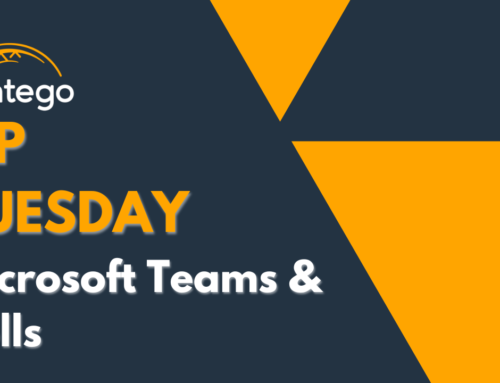Tech Support is the unglamorous necessity that every business will need at some point. Most businesses can’t function without calling the IT professionals and begging for help, whether that help be getting data back, getting employees back on company computers, securing valuable information, or bringing servers and networks back online. Tech support doesn’t make the world go round but it does keep it from stopping.
Tech support, like all tech industry definitions, is broad and represents a plethora of applications, solutions, and products. Before diving into the specifics, it’s important to go over the broad definition of tech support. Simply put, tech support is a wide variety of services and products that provide necessary information to get the technology you use up and running again. Below is a shortlist of some of the many areas of tech support.
Technology Review
Living in the past is inefficient, especially when the present holds frequent technology updates the provide more functionality, faster processing, and ultimately more efficient workflows. Tech support begins with technology reviews. This gives tech support companies a base to build from and provides an in-depth look at where your organization, from a technology standpoint, may be lacking. Some common questions that get asked in the technology review process include:
- What apps help your business run? Are these better, worse, or equal to your competition’s apps?
- What technologies exist that will help you run a more efficient business?
- Are there updates to pre-existing technologies that will improve your business’s functionality?
- Are you in a technology deficit? How much more strain can your hardware systems take before failing?
- Is anyone in your organization incapable of accomplishing tasks because of a technology hurdle?
Technology reviews are one-time events that occur before implementing new tools and resources. However, a brief review should be done every year to ensure all systems are working and up to date.
Security
More than just a firewall. Security involves training to spot issues, discovering passwords that have been compromised, implementing anti-virus protection software and anti-spyware protection, and developing intrusion detection systems. Security can be both virtual and physical. For example, intrusion detection systems create alerts when someone is at your office door. Additionally, data protection software can send alerts when data has been compromised or when there is an increased risk of data being stolen. With the increasing threat of ransomware attacks looming, security should be a primary concern for all companies.
Data Protection
Data backups can save a business. Imagine losing everything overnight and having no easy fix. This feeling of helplessness can be avoided through effective data protection. Ransomware attacks target company data: data backups offer comfort and allow your company to return to operations faster. Due to ever-changing complexities in data protection, backups must now be:
- Disconnected—Backups should be separated from your network, so they remain safe if the network environment is compromised.
- Tested—Frequently testing and validating backups must be a regular occurrence of your operations. A good rule of thumb is: if you can’t perform a restore, you don’t have backups.
- Accessible—The ability to access backups whenever necessary is integral to effective data protection. New data protection solutions allow you to access backups with all applications running immediately after an intrusion or ransom situation.
Servers and Networks
Servers can be housed onsite or in the cloud. Regardless of where they are, they need to be secure and accessible. Server configuration and maintenance is a time-consuming task, albeit a necessary one for any business operating or using servers. Things to look for in server and network support include:
- Is server management included?
- Is it possible to retrieve data through secure networking?
- Are monitoring services available that will send alerts and provide recommendations when needed?
Server and network management can create ongoing headaches. For most businesses, outsourcing this task is the most cost-effective and easy solution.
Desktops, Laptops, Phones and Tablets
Device incompatibility can lead to a plethora of problems. Ensuring all devices are configured properly and compatible with one another will inhibit hardware challenges from arising. Many tech support providers, including Contego Tech, offer:
- Device setup and configuration, including compatibility assessments
- Remote assistance on your devices
Application Support
Applications are rapidly moving to the Cloud and are becoming both more useful, more efficient, and more cost-effective, although are increasing in complexity. Getting the most out of your applications can be a difficult and knowledge-intensive task. Tech support providers will usually provide the following for application support:
- User training on all applications and available options
- Advice on how to best secure your data using the applications you use
Tech support can help your business become a leaner and more efficient machine. If you have any questions about tech support, please reach out in the form below.






Leave A Comment